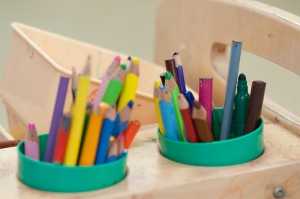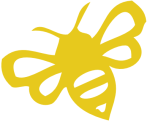Our Learning (curriculum)
 The main aim of the Pre-School is to “maintain a safe, healthy and nurturing environment where the developmental needs of the children are met”. Our latest Ofsted report gave the Pre-school an overall grading of GOOD.
The main aim of the Pre-School is to “maintain a safe, healthy and nurturing environment where the developmental needs of the children are met”. Our latest Ofsted report gave the Pre-school an overall grading of GOOD.
Assessment plays a large part in helping our teachers decide your child’s next steps. We have an online learning and assessment journal hosted by Famly. Your child’s key person will update your child’s personal learning journey with key milestones and day-to-day details of your child’s life at Pre-School. Parents can log in to read observations made on their child, look at photos and video clips, read where their child is progressing, give feedback and record observations at home too. It is important that you can provide information on areas of your child’s development that you have noticed at home. This builds up a fantastic picture of the wow moments in your child’s life as they grow through their Pre-School experience.
You can of course discuss your child’s learning journey or any other important information with your child’s key person at any time. Additionally, at 3 years old, you will be invited in to receive an update on the progress of your child.
Early Years Foundation Stage (EYFS) Framework
The EYFS is the national standard care framework with which we and all childcare settings must comply. The EYFS sets standards for the learning, development and care of your child from birth to 5 years old. The four themes of the EYFS underpin all the guidance, they are:
- a unique child - every child is a unique child, who is constantly learning and can be resilient, capable, confident and self-assured;
- positive relationships - children learn to be strong and independent through positive relationships;
- enabling environments - children learn and develop well in enabling environments, in which their experiences respond to their individual needs and there is a strong partnership between practitioners and parents and/or carers; and
- learning and development - children develop and learn in different ways and at different rates. The framework covers the education and care of all children in early years provision, including children with special educational needs and disabilities
What impact does the EYFS have on the child?
Practically and essentially, by complying with the EYFS we ensure that:
- Every child makes progress and that every child reaches the 17 Early Learning Goals
- Every child is included and not disadvantaged because of ethnicity, culture or religion, home language, family background, learning difficulties or disabilities, gender or ability and the use of clearer language
- There is strong partnership and communication between us and other professionals, making sure 2 year checks are completed between pre-school and health visitors
- Quality and consistency is improved by ongoing assessments
- Learning and development is planned around individual needs and interests of the child, and informed by the use of ongoing observational assessments
The EYFS Framework explains how and what your child will be learning to support their healthy development.
Your child will be learning skills, acquiring new knowledge and demonstrating their understanding through 7 areas of learning and development. These 7 areas are used by our Manager and staff to plan your child’s learnings and activities
Children should mostly develop the 3 prime areas first. These are:
- Communication and language;
- Physical development; and
- Personal, social and emotional development.
These prime areas are those most essential for your child’s healthy development and future learning.
As children grow, the prime areas will help them to develop skills in 4 specific areas. These are:
- Literacy;
- Mathematics;
- Understanding the world; and
- Expressive arts and design.
Progress check
Before a child turns 3, a progress check and profile is written collaboratively between Pre-school and you as the parent. It summarises how your child is progressing against the prime areas of learning (see below).
The reports highlight where your child is progressing well and where they may need extra help or support.
Our Pre-School Manager and staff are more than happy to talk with parents further in relation to the EYFS and their child’s individual development. We welcome you asking as many questions as you need to.
- The full version of the EYFS, including the early learning goals, is available for you to view at the Department of Education website.
Life lessons
We offer as much support as possible to help you toilet train your child. Please bring in spare nappies, wipes and nappy sacks, as well as plenty of changes of clothes.


